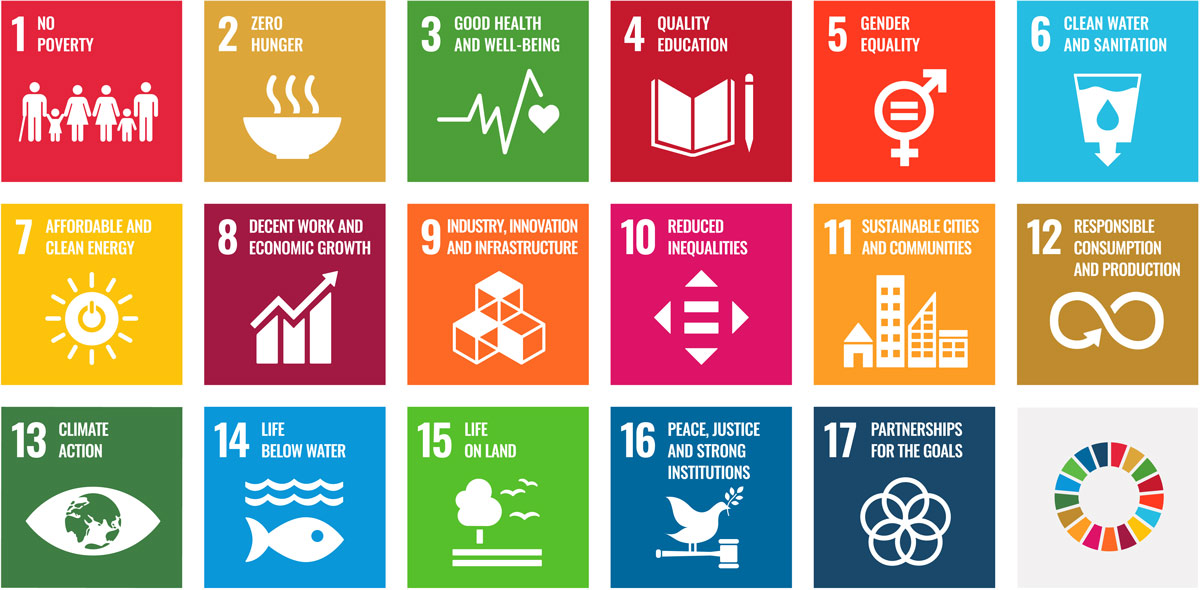EU Action Plan
Climate change and environmental destruction are existential threats. The European Union has set itself the ambitious goal of transitioning to a low-carbon economy without compromising the prosperity and quality of life of the people of Europe. Europe aims to become a climate-neutral continent where economic growth is decoupled from resource use. The European Commission’s Green Deal, presented in December 2019, sets out a roadmap for policy action: The idea is to fundamentally transform the economy. By 2050, there will be no net emissions of greenhouse gases in the European Union. The financial industry has been called upon to play a decisive role in the management of capital. There are plans to channel more than 1 trillion euros into sustainable investments in the years to come. The EU Action Plan for Financing Sustainable Growth was launched in May 2018 to help achieve this.
The political strategy has been set and pursues clearly defined goals:
- Redirecting capital flows towards sustainable investments
- Integrating sustainability into risk management
- Fostering transparency and sustainability
EU Disclosure Regulation
Since 10 March 2021, the Disclosure Regulation has transposed into regulatory and operational terms the three strategic objectives of the EU Action Plan for financial market participants, financial advisors and investors. Since that date, financial market participants and financial advisors have been subject to transparency regulations on the inclusion of sustainability risks and the consideration of adverse sustainability impacts in their processes and in the provision of information on the sustainability of financial products.
Sustainability risks are required to be included in the investment decision-making process, independently of whether sustainable or conventional financial products and investment strategies are involved. Moreover, financial market participants must explain how they are implementing these measures. This means that starting from 10 March 2021, financial market participants will be required to disclose information on their websites about their strategies for incorporating sustainability risks into investment decisions.
Special disclosure requirements apply if a financial product advertises environmental or social features or pursues a sustainable investment strategy. In this connection, the Disclosure Regulation indirectly creates three product categories that represent the basis for the distribution and disclosure obligations of sustainable financial products.
- Standard
All non-sustainable financial products (pursuant to Article 6) for which only sustainability risks are required to be included in the investment process. - ESG Strategy
All financial products (pursuant to Article 8) that advertise environmental or social features or a combination of these features. - Impact
All financial products (pursuant to Article 9) that are designed for sustainable investment.
The Disclosure Regulation does not specify thresholds and exclusion criteria for financial products. However, ESG strategy products (pursuant to Article 8) are required to demonstrate how the selected environmental or social characteristics are fulfilled. Impact products (pursuant to Article 9) are also required to disclose how the intended sustainability target is to be achieved.
GANÉ Aktiengesellschaft is an intermediary contractually bound to BN & Partners Capital AG pursuant to Section 3 (2) of the German Banking Act (WpIG). The mandatory disclosures made by BN & Partners Capital AG as an investment firm/financial advisor under the EU Disclosure Regulation can be found at the following link: «ESG»
PRI – Principles for Responsible Investment
 GANÉ Aktiengesellschaft became a signatory to the UN Principles for Responsible Investment in March 2021. These principles commit all members to the integration of environmental, social and governance (ESG) issues into their investment process.
GANÉ Aktiengesellschaft became a signatory to the UN Principles for Responsible Investment in March 2021. These principles commit all members to the integration of environmental, social and governance (ESG) issues into their investment process.
The PRI Initiative, together with its international network of signatories, is dedicated to the practical implementation of six principles for responsible investment. The objective of this is to better understand the impact of investment activities on environmental, social and governance issues and to help signatories integrate these issues into their investment decisions.
- We will incorporate ESG issues into investment analysis and decision-making processes.
- We will be active owners and incorporate ESG issues into our ownership policies and practices.
- We will seek appropriate disclosure on ESG issues by the entities in which we invest.
- We will promote acceptance and implementation of the Principles within the investment industry.
- We will work together to enhance our effectiveness in implementing the Principles.
- We will each report on our activities and progress towards implementing the Principles.
The Principles for Responsible Investment were developed by an international group of institutional investors reflecting the increasing relevance of environmental, social and corporate governance issues to investment practices. The process was convened by the United Nations Secretary-General. In signing the Principles, we as investors publicly commit to adopt and implement them, where consistent with our fiduciary responsibilities. We also commit to evaluate the effectiveness and improve the content of the Principles over time.
Sustainability philosophy
Investment success and sustainability go hand in hand at GANÉ. Only companies with long-term success can be sustainable. One of the ways in which they improve their profitability is through the sustainable and responsible use of their resources. This applies equally to the production factors of labour, capital, land and energy. Our view of a company’s ESG performance is accordingly holistic. The first step in our investment process is to analyse the business model: Aspects such as stability, competitiveness, profitability, pricing power, growth prospects and balance sheet quality are crucial factors in this context. Key management personnel are particularly important in determining the sustainability of the business model. This is why our analysis focuses on the question of whether the company management acts in the way we, as owners, would like it to. Aspects such as corporate culture, integrity, risk management, compliance, compensation system, innovation and investment in the future, as well as a focus on increasing the growth rate of operating profitability and dividends are all key factors. At the same time, companies should strive to reduce their environmental footprint by improving raw material and energy efficiency and by avoiding waste and emissions. We are convinced that in future consumer demand for products and services from ecologically and socially responsible companies will be even greater than it already is today. Natural cosmetics instead of additives, organic food instead of flavour enhancers, fair trade instead of labour exploitation and renewable energies instead of coal-fired power generation are just a few watchwords.
MSCI ESG Research
We work together with MSCI ESG Research, the market-leading international provider of ESG analyses and ratings, to ensure systematic compliance with sustainability criteria. The data and analyses facilitate our qualitative and quantitative analysis of companies. We can use this approach to analyse hundreds of E, S and G factors both individually and in combination with our own assessment factors.
This allows us to select companies that are particularly committed to the 17 UN Sustainable Development Goals. The targets were modelled on the development process of the Millennium Development Goals (MDGs) and came into force on 1 January 2016 with a duration of 15 years, until 2030.

Exclusion criteria
GANÉ applies a 10-point set of criteria to exclude companies that are particularly likely to present sustainability risks. We differentiate between exclusion criteria without a turnover threshold (absolute prohibition on acquisition) and exclusion criteria with a turnover threshold (5% and 10% of the company’s total turnover).
- Development, production or distribution of armaments (pursuant to the War Weapons List, which is annexed to the German Military Weapons Control Act (Gesetz über die Kontrolle von Kriegswaffen)).
- Development, production or distribution of weapons that are prohibited under international law (e.g. landmines)
- Extraction of oil sand and natural resources from shale (fracking)
- Extraction and conversion of coal into electricity
- Generation of nuclear power
- Oil production
- Operation of gambling venues
- Production or distribution of pornographic material
- Production or distribution of tobacco products
- Production of spirits (minimum alcohol content 15 percent by volume)
There is an absolute prohibition on investments in companies engaged in the prohibited weapons and in the extraction of oil sand and natural resources from shale (fracking). A 5% turnover threshold applies to the production or distribution of tobacco products. We also exclude controversial business practices. We evaluate these companies on the basis of the «10 Principles» of the UN Global Compact with regard to gross violations of human rights, labour rights, environmentally harmful behaviour and corruption.
Initiatives
- GANÉ supports World Vision Deutschland e.V.
We consider it a matter of importance and an obligation at the same time to be a reliable partner for society. For this reason, GANÉ has sponsored a child through “Future for Children”, a charity organisation run by World Vision, for every completed business year since its foundation. We support children from developing countries, their families and their environment in the fight against poverty and injustice, regardless of ethnic origin, religion or nationality. - Power source
The electricity in our office is generated 100% from hydropower. - Data processing
We prioritise a high level of paperless data processing. This applies to incoming faxes, for example, as well as to the information archiving. - Printing and copying
We do very little printing and copying in our day-to-day work. If possible, it is done in black and white, not in colour. We do not produce glossy brochures and neither do we send advertising, greeting cards or fund-related documents to business partners, investors or interested parties. All necessary information and documents are made available transparently and digitally on our website or sent by e-mail. - Mobility
Wherever possible, we use public transport for transport. Each employee is provided with a 1st class Bahncard 50 (a German train discount card), free of charge. There are no company vehicles at GANÉ. Increasingly, on-site meetings are being replaced by online and multi-media conferences at GANÉ. We are doing this to reduce travel to the minimum necessary so that we can reduce our carbon footprint. - Fair Trade
We purchase fair trade office supplies where possible. - Working hours and workplace
Thanks to digitalisation, working hours and workplaces are becoming more flexible. We actively take advantage of these opportunities to promote agile, mobile ways of working. We do not have any rigid guidelines regarding working hours, work location and holidays. - PRI – Principles for Responsible Investment
GANÉ Aktiengesellschaft became a signatory to the UN Principles for Responsible Investment in March 2021 as part of its ongoing commitment to sustainability.
News Coverage
- ACATIS Value Event Fund earns top rating once again
The ACATIS Value Event Fund (former ACATIS GANÉ Value Event Fund, until 30/09/2022) earns top rating for return and sustainability. In April 2021, the German business newspaper Handelsblatt assessed the largest balanced funds with respect to yield and sustainability. The assessment showed that Uwe Rathausky and Henrik Muhle deliver excellent returns with their balanced fund while at the same time being sustainable investors. Online platform Cleanvest evaluated the 15 offers with the largest capital on the basis of sustainability criteria for Handelsblatt and examined the fund investments with regard to environmental and social criteria. “There are only a few products with a good ‘green’ profile,” says Cleanvest CEO Armand Colard. The ACATIS Value Event Fund (former ACATIS GANÉ Value Event Fund, until 30/09/2022) is one of these outstanding funds. «Article‑Download (German)» «Link (German)» - Two top ratings of “1A” for return and sustainability
In June 2021, the ACATIS Value Event Fund (former ACATIS GANÉ Value Event Fund, until 30/09/2022) was one of just four balanced funds to receive a fund rating (FondsNote) of 1 and an Eco-Rating of “A” from TiAM FundResearch. TiAM FundResearch uses the FundNote rating to measure the performance of a fund (75%) and its risk (25%) over the past four years. The FondsNote rating also takes into account the qualitative assessment by the analysts at FondsConsult. The scores, which are updated monthly, range from 1 (very good) to 5 (unsatisfactory). The data is supplied by Mountain-View Data GmbH. The Eco-Rating assesses a fund’s environmental and climate orientation based on the equities and bonds included in the portfolio. High CO2 emissions and a high share of coal lower the Eco-Rating, while a high proportion of renewable energies improves it. The ratings range from A (very good) to E (unsatisfactory). The ratings are calculated quarterly by Mountain-View Data GmbH. Corporate CO2 emissions data is provided by Inrate AG. «Link (German)» - Top rating in Morningstar Sustainability Rating
Fonds Professionell magazine analysed the largest balanced funds in September 2021. The ACATIS Value Event Fund (former ACATIS GANÉ Value Event Fund, until 30/09/2022) received the top rating in the Morningstar Sustainability Rating (5 out of 5 points) and also has a very low ESG risk (rank 2 in the Morningstar peer group). The fund also received an “A” rating (CCC to AAA) in the MSCI ESG Fund Rating. «Article‑Download (German)»
